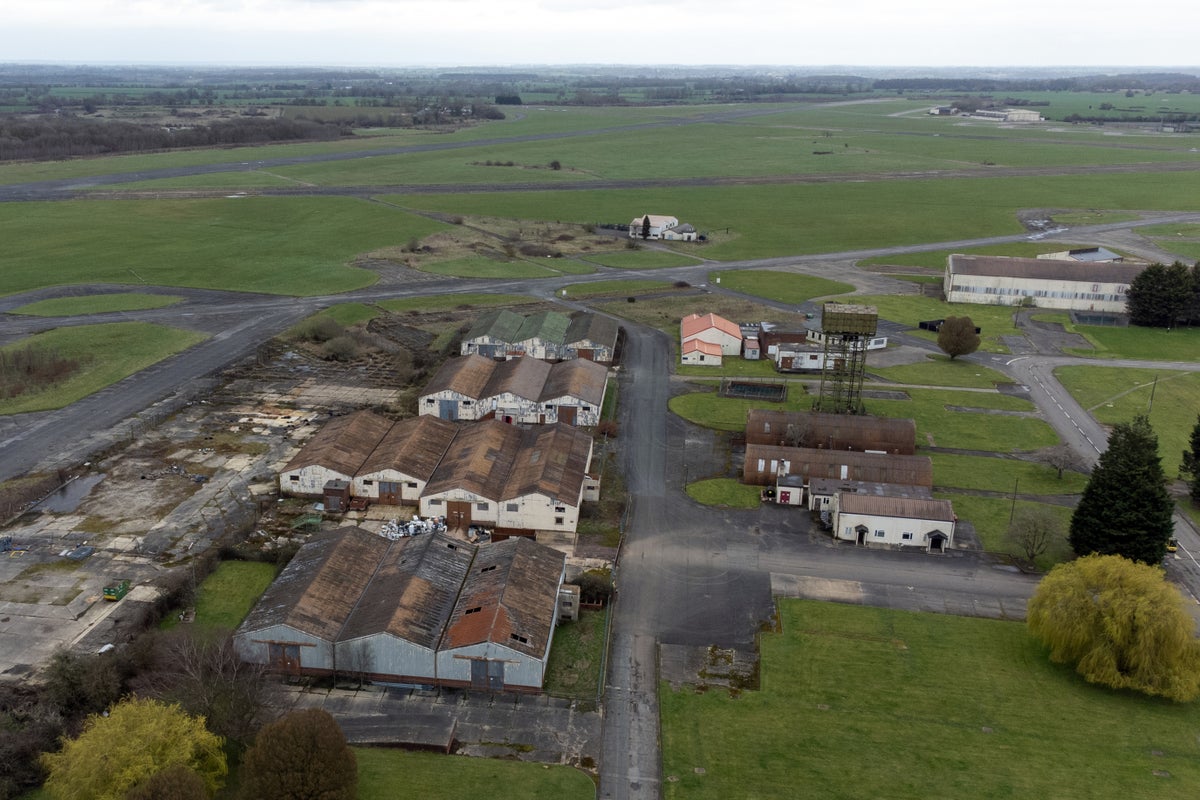
The Home Office has been accused of using the Wethersfield airfield as a large “open-prison camp” as a new report claims “suicidal” asylum seekers are being subjected to “intense desperation and fear”.
The former airbase in Essex started receiving asylum seekers in July and, by the end of October, 508 men had been placed there. The site is currently facing a legal challenge by Refugee charity Care4Calais as it claims asylum seekers are being housed there illegally.
In a joint report by the Helen Bamber Foundation (HBF) and Humans for Rights Network (HFRN), men held there have reported “anxiety and depression, suicidal ideation, intense desperation and fear, self-harm, and acute sleep deprivation”.
After 10 detailed assessments by HBF’s clinicians and HRNN’s casework with over 140 individuals, they found that the men have displayed symptoms of worsening mental health following their transfer to the camp.
This includes low mood, loneliness, flashbacks, reduced appetite, weight loss, feelings of despair and difficulty sleeping, and a worsening in symptoms of Post-Traumatic Stress Disorder.
The report said when one man shared his suicidal thoughts with members of staff at the site, he was told that it was “normal in this environment”.
Nearly a third of asylum seekers in Wethersfield are from Afghanistan at 29 per cent, while 20 per cent are from Iran and 16 per cent are from Eritrea. Many of the men are survivors of torture and trafficking and have severe mental health issues.
The Home Office has been accused of using the Wethersfield airfield as a large “open-prison camp”— (PA Wire)
When Salman, who came from Iran, was taken to Wethersfield, he was told he would be there for two weeks. He has been there for two months.
“I have attempted suicide personally because of the conditions of the camp,” he said. “Once I tried to hang myself and once there was a group of us six or seven people tried to set ourselves on fire, they didn’t let us in the camp and extinguished the fire. I had a part of my T-shirt burnt, many others as well, it has affected our mental health in a very bad way.”
“The hardest part for me after what I have been through in Libya, is what I am going through now in Wethersfield,” said Nasser.
“People screaming at night, gunshots can be heard. When someone wakes up screaming, I don’t know what to do. I came through Libya, this place is no different.”
The Home Office, under James Cleverly, is being urged to close Wethersfield immediately as concerns for asylum seekers grow— (AP)
The Independent has previously reported on an incident where an Iranian man apparently collapsed while on hunger strike at Wethersfield, in a video passed to Care4Calais. The group said staff at the centre failed to get the man emergency medical help while one person, who the charity claims is a staff member, could be heard saying: “Yes, but he had three meals a day. Three meals. That was his choice not to eat guys.”
Wethersfield was initially proposed as a temporary site for 12 months, but the Home Office intends to extend the use of the site for a further three years.
Kamena Dorling, director of policy at the Helen Bamber Foundation, said: “The government claims that these horrific camps on former military sites are necessary to manage the record number of people arriving in the UK to seek asylum.
“But the real problem is the Home Office failure to efficiently process asylum claims in time, which would allow those who have been granted refugee status to move on and live independently.”
Maddie Harris, director of the Humans for Rights Network, said it is “only a matter of time before someone dies in Wethersfield” as she called for it to be closed “with immediate effect”.
Ms Harris said: “The camp’s isolated setting, cutting these men off not only from their own communities but from society as a whole is causing profound distress and re-traumatisation amongst all those we have spoken to.
“By placing men in Wethersfield, this government is ghettoising people seeking asylum in the UK, preventing them from accessing justice and other vital entitlements such as adequate medical care. This government has a legal obligation to provide them with safe, secure accommodation.”
A Home Office spokesperson said: “The welfare of individuals at the site is of the utmost priority.
“All residents have access to medical support, including mental health support, and the food provided meets NHS Eatwell standards, catering for all cultural and dietary requirements. A 24/7 helpline provided by Migrant Help is available to raise any concerns.”







